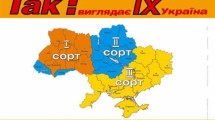Abstract
In this essay, I trace the enabling conditions for the major statement of the subversive subtext in Bilhaṇa’s Vikramāṅkadevacarita (VDC) by unpacking the operation of the work’s patent, eulogistic text. In particular, I will explore the place given to the depiction of male intimacy as a poetic substitute or simulacrum for the political alliances central to Vikramāditya’s coming to the throne, as described in the mahākāvya’s fourth through sixth sargas. My intention in focusing on the intense friendships between men is to highlight a significant rhetorical strategy of Bilhaṇa’s, which allowed the poet both to introduce and to buffer the poem’s most explicit statement of his skepticism towards royal power. It is this charged affective theme—one that occupied only a tenuous position within the regnant critical discourse of literary emotion at the time—that sets up Bilhaṇa’s most powerful and explicit denunciation of kingship. The explicit theme of royal praise and the subtext of its denunciation can thus be seen as contrapuntally related, which goes some way towards explaining how the court poet was able to successfully carry off his potentially incendiary literary project.
Similar content being viewed by others
References
Primary Sources
Kāvyādarśa of Daṇḍin. Edited by A. Thakur and U. Jha. Darbhanga, 1957.
Kāvyālaṃkāra of Rudraṭa. Edited by P. Durgāprasād and W. Lakshman Panshikar. Bombay, 1928.
The Kauṭilīya Arthaśāstra. Edited and translated by R. P. Kangle. Bombay, 1960–1965.
Daśarūpaka of Dhanañjaya. With the –avaloka of Dhanika and the -laghuṭīkā of Bhaṭṭanṛsiṃha. Edited by T. Venkatacharya. Madras: 1969.
Navasāhasāṅkacarita of Padmagupta. Edited by V. S. Islampurkar. Bombay, 1895.
Nītivākyāmṛta of Somadevasūri. Edited by S. K. Gupta. Jaipur, 1987.
Mānasollāsa of Someśvara. Edited by G. Shrigondekar. Baroda, 1925.
Raghuvaṃśa of Kālidāsa. Edited by H. Mitra. Varanasi, 1994.
Vakroktijīvita of Kuntaka. Edited by K. Krishnamoorthy. Dharwad, 1977.
Vikramāṅkadevacarita of Bilhaṇa. Edited by M. L. Nagar. Benares, 1945. Also edited by G. Buhler. Bombay, 1875.
Secondary Sources
Ali D. (2004) Courtly culture and political life in early India. Cambridge University Press, Cambridge
Archaeological Survey of Madras. (1887) Annual report of epigraphy. Government Press, Madras
Banerji, S. Ch., & Gupta, A. K. (Trans.). (1965). Bilhaṇa’s Vikramaṅkadeva caritam: Glimpses of the history of the Calukyas of Kalyaṇa. Calcutta Sambodhi Publications.
Bronner, Y. (2010). The poetics of ambivalence: Imagining and unimagining the political in Bilhaṇa’s Vikramāṅkadevacarita. Journal of Indian Philosophy. doi: 10.1007/s10781-010-9100-1.
Burgess J. (1876) Book notices: The Vikramāṅkadevacharita [...] edited with an introduction by Georg Buhler. The Indian Antiqury 5(1): 324–327
Cox, W. (2009, March 27). Surviving desire: The Bilhaṇīya and late-medieval pandit culture. Paper presented at the Association of Asian Studies annual meeting.
Cox W. (2010a) Scribe and script in the Cālukya West Deccan. Indian Economic and Social History Review 47(1): 1–28
Cox W. (2010b) Law, literature and the problem of politics in medieval India. In: Lubin T., Davis D., Krishnan J. (eds) Hinduism and law: An introduction. Cambridge University Press, Cambridge
Cox, W. (forthcoming). Saffron in the rasam. In Y. Bronner, W. Cox, & L. McCrea (Eds.), New directions in South Asian studies in honor of Sheldon Pollock.
Fleet, J.F. (1894). Dynasties of the Canarese districts of the Bombay Presidency. Government Central Press, Bombay
Gerow E. (1994) Abhinavagupta’s aesthetics as speculative paradigm. Journal of the American Oriental Society 114(2): 186–208
Masson, J. M., Patwardhan, M. V. (Trans.). (1969). Śāntarasa and Abhinavagupta’s philosophy of aesthetics. Poona: Bhandarkar Oriental Research Institute.
McCrea L. (2009) The teleology of poetry in Kashmir. Harvard University Press, Cambridge, MA
McCrea, L. (2010). Poetry beyond good and evil: Bilhaṇa and the tradition of patron-centered court epic. Journal of Indian Philosophy. doi: 10.1007/s10781-010-9098-4.
Miller B. (1984) The theater of memory: The plays of Kālidāsa. Columbia University Press, New York
Mishra B.N. (1976) Studies on Bilhaṇa and his Vikramāṅkadevacarita. K. B. Publications, New Delhi
Nagar M.L. (1992) Bilhaṇa’s Vikramāṅkadevacarita and its neo-expounders. International Library Center, Colombia, MO
Pollock S. (2006) The language of the gods in the world of men: Sanskrit, culture and power in premodern India. University of California Press, Berkeley
Pollock, S. (Ed and Translator.). (2007). Rama’s last act. New York: New York University Press.
Raghavan V. (1967) The number of Rasas. Adyar Library, Madras
Raghavan V. (1973) Studies in some concepts of the Alaṃkāraśāstra. Adyar Library, Madras
Taylor M. (2007) The fall of the indigo jackal: The discourse of division and Pūrṇabhadra’s Pañcatantra. State University of New York Press, Albany
Tubb, G. (2005, Marck 20). Abhinanda’s Rāmacarita and the legacy of Bāṇa. Paper delivered at the 215th meeting of the American Oriental Society.
Author information
Authors and Affiliations
Corresponding author
Rights and permissions
About this article
Cite this article
Cox, W. Sharing a Single Seat: The Poetics and Politics of Male Intimacy in the Vikramāṅkakāvya. J Indian Philos 38, 485–501 (2010). https://doi.org/10.1007/s10781-010-9099-3
Published:
Issue Date:
DOI: https://doi.org/10.1007/s10781-010-9099-3




